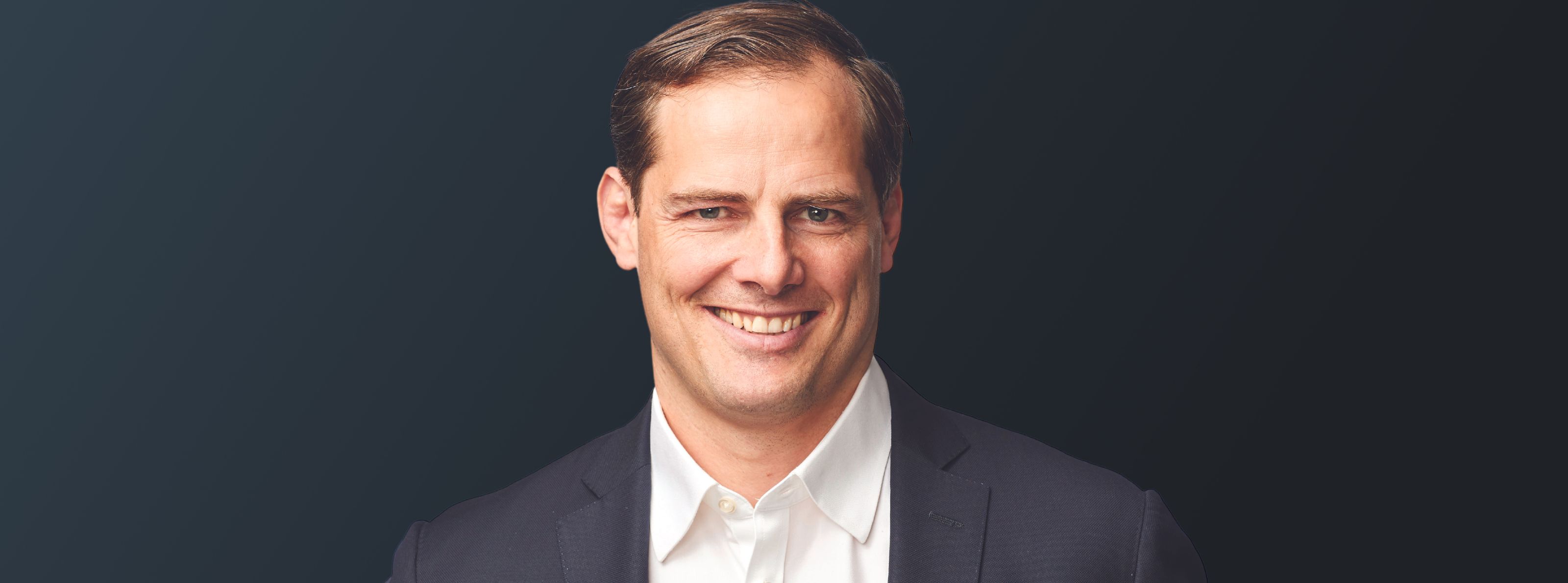8 investment leaders share their best ideas as markets rebound
Despite all the doom and gloom that we have been reading about markets, it's surprisingly been a pretty good month for investors - other than those invested in property, that is.
Since the beginning of July, the S&P/ASX 200 has lifted 6.6%, while the S&P 500 and the NASDAQ 100 have soared 7.7% and 11.7% respectively. Meanwhile, Australian house prices are falling at their fastest rate since the Global Financial Crisis. Yikes.
It's a confusing time, I know. And the bulls and bears are pulling us in either direction. But luckily, I was able to recently attend the Pinnacle Summit Series - Latest Strategies event in Sydney, where eight of the distribution house's 16 boutiques shared how they are navigating the market environment right now.
This included Aussie equities-focused managers like Marcus Burns of Spheria, and Charles Casey of Solaris, as well as global equities specialists Rahul Desai of Aikya and Greg Dean of Langdon.
It also included listed real assets and property expert Jan de Vos, of Resolution Capital, as well as three sustainably centred fund managers covering everything from long/short strategies and global equities to real assets.
In this wire, I share a summary of these managers' presentations, my favourite quote from each, as well as some of their best ideas right now across these asset classes.
Note: The Pinnacle Summit Series - Latest Strategies event occurred in Sydney on Wednesday 27th July 2022. These quotes and slides are taken from presentations during this summit.
Spheria Asset Management: Marcus Burns
.jpg)
- Specialises in: Aussie micro, smalls and mid-50 stocks.
- The quote: "It pays to be risk-averse, especially during tough times."
Burns is a small-cap value specialist who is on the hunt for stocks that are trading below their intrinsic value with strong free cash flows and impressive balance sheets.
That said, he isn't one to be closed-minded and is willing to give small stocks a second chance if say, they appoint a new CEO, for example.
"In small caps, a new CEO or management team can have a dramatic impact in a pretty short period of time - they can sell assets, make acquisitions, or change strategies - and because they're much smaller businesses, the management team can execute quite quickly," he said.
For example, Michael Hill (ASX: MHJ), originally a family-run jeweller, which appointed a former Speciality Fashion Group managing director as its CEO in 2018.
"The CEO Daniel Bracken has executed an incredibly internal turnaround of the business, from sales and how it was all run, focusing much more online, implementing much more even pricing, which has all produced a big lift to the business' revenue growth," Burns said.
"Now, their cash flow conversion is very strong, particularly during 2021, where a massive amount of free cash flow was generated by the management team, despite the fact that 23-24% of stores were closed. So they weren't a beneficiary of COVID-19 at all."
Another example and recent portfolio addition is REA Group (ASX: REA), which boasts around 96% free cash flow, Burns said, and is currently the biggest position in the Spheria portfolio.
"This business is the market leader and the only negative about this stock is it does get expensive occasionally... However, as it got sold off with rates going up this year... and we think it's now an attractive opportunity," he added.
Other top stocks in the Spheria portfolio include A2 Milk (ASX: A2M), Alumina (ASX: AWC), Flight Centre (ASX: FLT), Incitec Pivot (ASX: IPL), Orora (ASX: ORA), ALS (ASX: ALQ), IRESS (ASX: IRE) and Breville Group (ASX: BRG).
Resolution Capital: Jan de Vos
.jpg)
- Specialises in: listed real estate, infrastructure and real assets.
- The quote: "The listed market is very cheap compared to the unlisted market (it's about 20% cheaper)."
While many have forewarned of the pain to come for REITs as inflation and rising interest rates continue to take their toll, de Vos noted that over the long term, rents tend to meet or exceed inflation.
Infrastructure companies, in comparison, directly benefit from inflation, particularly utilities, toll roads, and freight rail, as well as telecommunications and renewables, which boast less direct links to inflation.
"Instead of focusing on different narratives, like inflation headwinds and bond proxies, I think it's much more productive to be focusing on pricing power - who has the ability to really increase rents. And the other point is, of course, capital management," he said.
With that in mind, de Vos points to three different REITs that are economically resilient and continue to display attractive growth characteristics.
These include childcare property developer and operator Arena REIT (ASX: ARF), which boasts "an average lease length of 20 years. It's internally managed. It has low leverage and best of all, its leases increase every year by CPI inflation or 2.5%," he explained.
"So even in a more difficult macroeconomic environment, this company is still able to produce solid earnings growth."
Similarly, Transurban (ASX: TCL) is benefiting from both population growth (over the long term) and the ability to raise tolls in line with inflation (short term), de Vos explained, while Goodman Group (ASX: GMG) should continue to benefit from the shift to digitisation.
Meanwhile, he also pointed to two global opportunities that could benefit as the world rapidly decarbonises - Terna Energy (FRA: 44T) and SSE PLC (LON: SSE).
Aikya Investment Management: Rahul Desai
.jpg)
- Specialises in: Emerging market equities.
- The quote: "We believe who we are investing in is almost more important as what we are investing in when it comes to Emerging Markets."
Instead of judging every investment by its financials or its franchise and market position, Desai and his team instead try to analyse these fundamentals through the lens of stewardship (aka how a company treats its stakeholders).
"It's a very powerful philosophy because by focusing on stewardship, we are going to protect from downside because we stay away from trouble by investing with good stewards, and we also compound capital nicely over the long run," he said.
"There is a good long-term potential in emerging markets, but a lot of the things we take for granted - the things we read in investment books, the things we learnt at university, the things that we might pick up while listening to celebrity investors like Warren Buffett, the things we take for granted - they don't apply in emerging markets because the rule of law is sometimes lacking in many of the markets we invest in."
So instead of searching for the next hot emerging markets stock, Desai and his team are on the hunt for well-stewarded, family-owned businesses.
For example, Marico (NSE: MARICO), which was founded by Harsh Mariwala, who recently appointed a former senior manager to CEO instead of passing the reins to his children, and now oversees the company's board.
This fast-moving consumer goods business rapidly innovated during the COVID period, launching a new healthy food verticle which has increased their addressable market by about 30 or 40%, Desai said.
"This is the type of stewardship that we are looking for - true entrepreneurs and good managers who can find such opportunities. And at times of weakness in the market, they can use it to their advantage," he added.
Solaris Investment Management: Charles Casey
.jpg)
- Specialises in: Aussie equities (with a focus on income)
- The quote: "Yield is really important, but it's growth that matters."
Although it's been a difficult few months for equities investors, Casey recommended they take a step back and take a longer-term view. That's because, since 1900, Australian investors have seen cash double after inflation, while bonds have increased nine times. Aussie equities, in comparison, have increased a whopping 3192 times.
"We believe that productive Australian businesses that are well placed to reinvest their earnings and grow their earnings over time are really well placed to outperform inflation," he said.
As an income equities specialist, Casey and his team are on the lookout for sustainable and growing yields and believe you should be too. After all, franking credits and dividends have comprised over 75% of the total return of Aussie shares since 2010, he said.
"But we believe that you can't just blindly chase yield and it's the sustainability of yield that really matters," Casey said.
He points to the discretionary retail sector as one the team is avoiding, as well as companies that had previously benefited from low borrowing costs or which have borrowed debt to finance dividend growth over time.
Meanwhile, Casey points to companies like Macquarie Group (ASX: MQG), Aristocrat Leisure (ASX: ALL), Altium (ASX: ALU), James Hardie (ASX: JHX), Cochlear (ASX: COH), Mineral Resources (ASX: MIN), BHP Group (ASX: BHP), IGO (ASX: IGO), CSL Ltd (ASX: CSL), Goodman Group (ASX: GMG), and Cleanaway Waste Management (ASX: CWY) as companies that will be able to generate sustainable yield growth going forward.
"What we believe really matters in generating income is growth," Casey said.
"The ability for a company to reinvest and grow its dividends over time and pay sustainable dividends is absolutely key. So it's important to step back and realise investing is a long-term game, targeting dividends is important, but growing capital and growth is absolutely key. It's growth that matters."
Langdon Equity Partners: Greg Dean
.jpg)
- Specialises in: Global small caps
- The quote: "Exceptional investment opportunities occur when you own exceptional businesses. And our goal is to own them as small as we can."
While Dean started off his career specialising in large caps, it has always been small caps that have caught his eye. After all, "it's been since the Paleozoic Era that small caps and outperformed large caps, or for some crazy long period of time," he said.
About 10 years ago, he set up his own global small-cap fund. He now focuses on finding truly valuable companies that the fund can own for five to 10 years, and in some cases 15 years, but the only way to do that is to find them early, he said.
"Our core belief at Langdon is that if you own a business long enough, you will compound at the rate in which that business is compounding value per share," Dean said.
"It doesn't mean valuation doesn't matter. But I think we just need to reframe the conversation for ourselves and for clients at times to really think about the business and less about the stock."
However, in moments like these, people tend to shift back to what they know - mega caps with solid, reliable earnings.
"But often these investment opportunities, like what we are currently seeing, present most compellingly when people are scared," he said.
He points to examples like Prairie Sky (TSE: PSK), which boasts free cash flow margins of 83%, as well as Thule Group (STO: THULE), Medpace Holdings (NASDAQ: MEDP), Goosehead Insurance (NASDAQ: GSHD), and Dalata Hotels (LON: DAL), which generate free cash flow margins of 14%, 24%, 22% and 27% respectively - pretty impressive stuff for small caps.
In addition, like Desai, Dean believes that the people behind the business are key to success in small-cap investing.
"People create value, people add value, it's people who can make or break a business. It's not run by systems and processes and bureaucracy," he said.
"So it's really important in the current moment to have the right people, making the right decisions with the right culture."
Firetrail Investments: Anthony Doyle
.jpg)
- Specialises in: Global sustainable equities
- The quote: "Share prices always follow earnings."
Recent Firetrail recruit Doyle said that the team was busy finding opportunities within companies making positive changes to the world before the rest of the market cottons on.
"If you can do that, that represents significant alpha and long-term investment performance," he said.
Firetrail splits investment opportunities into two buckets: either a company is a current or a future leader in positive change, Doyle said. In each case, the team is looking for sustainable earnings, sustainable business models and real positive change. But this could be across value, growth, small to mid to large caps, any geography, and both low and high carbon-emitting sectors.
"Now, we identify these companies early, as when the market does recognise the significant contribution that these companies are making, you'll see earnings improve, earnings re-rate, and eventually, the share price re-rate, as share prices follow earnings," he said.
He points to Darling Ingredients (NYSE: DAR) and Weyerhaeuser Co (NYSE: WY) as two examples, the first of which recycles cooking oil to produce diesel, trades on a P/E of 13 times and could have 55% upside from here, Doyle said. Meanwhile, Weyerhaeuser, a timberland company with carbon credit optionality which trades on a P/E of around 11 times, could lift 80% from here, he added.
Plato Investment Management: Dr David Allen
.jpg)
- Specialises in: Long/short global sustainable investing (150% long, 50% short)
- The quote: "You learn far more from your failures than you do your successes."
The Plato Global Net Zero Hedge Fund launched in September last year and is the world's first negative carbon footprint fund (without using carbon credits). So why is Allen investing offshore? Well, Australia pretty much takes out the top gong in terms of our emissions per person in the developed world, Allen said.
"That's a gold medal you really don't want to win. And if you actually incorporated our scope 3 emissions, so all of the coal we're exporting to countries around the world for steel and energy, Australia is literally off the chart," he said.
Instead, the fund invests in "pragmatic ESG" - the world's best companies within sectors like aviation, energy, agriculture and steel, with lower emissions than their peers.
For example, Eversource Energy (NYSE: ES), a US-based electricity and natural gas provider, is investing a huge amount of money into R&D to improve carbon efficiency. Meanwhile, a company like CK Infrastructure (HKG: 1038) would be a great shorting opportunity, as out of the 10,000 stocks in Plato's universe, they are the worst in terms of the amount of carbon they generate, he explained.
To identify such shorting opportunities, Allen and the team also use a system of 126 red flags, a process that originated in 2014 after a Spanish investment blew up. Now, the team has deduced that six or more red flags normally spell disaster for a company.
"The fascinating thing is in isolation, each one of these red flags isn't all that powerful," he said.
"But collectively, the whole is much, much greater than the sum of the parts. And you end up with something that's actually a great way to identify potential landmines in the portfolio, but also fertile shorting opportunities."
Palisade Impact: Vilija Robinson
.jpg)
- Specialises in: Next generation infrastructure investments and impact investing
- The quote: "We're investing in infrastructure like assets and businesses where the positive impact on people and planet enhances financial returns."
For those that haven't heard of Palisade before, the firm has been investing in mid-market infrastructure in Australia for over 10 years and manages $3.5 billion in funds under management. The firm is currently invested in 26 "next generation infrastructure assets" that support the race to net zero.
"When we talk about the race to zero, we're focusing on three key areas - net zero emissions, zero waste, and zero inequality. And when we talk about inequality, we're talking about access to essential services and infrastructure," Robinson said.
To meet net-zero targets, Australia will require $450 billion in investments over the next few years - which is a massive opportunity by anyone's standards. But for Palisade, the most exciting opportunities are currently found in businesses that own distributed infrastructure, infrastructure enabled by policy or technology, and higher growth investments with faster payback periods than traditional infrastructure assets.
She pointed to Gigacomm and Ecosave as two recent deals Palisade has closed in recent months. The first is a "next generation digital infrastructure business" - an internet service provider supplying internet at higher speeds and lower costs than existing infrastructure. Meanwhile, Ecosave is a energy as a service business, which is investing in distributed infrastructure that allows businesses to become cleaner and more energy efficient.
Access new solutions and new opportunities
Advisers and other wholesale investors can watch full video replays of the presentations from the Pinnacle Summit Series here.
5 topics
21 stocks mentioned
3 contributors mentioned

